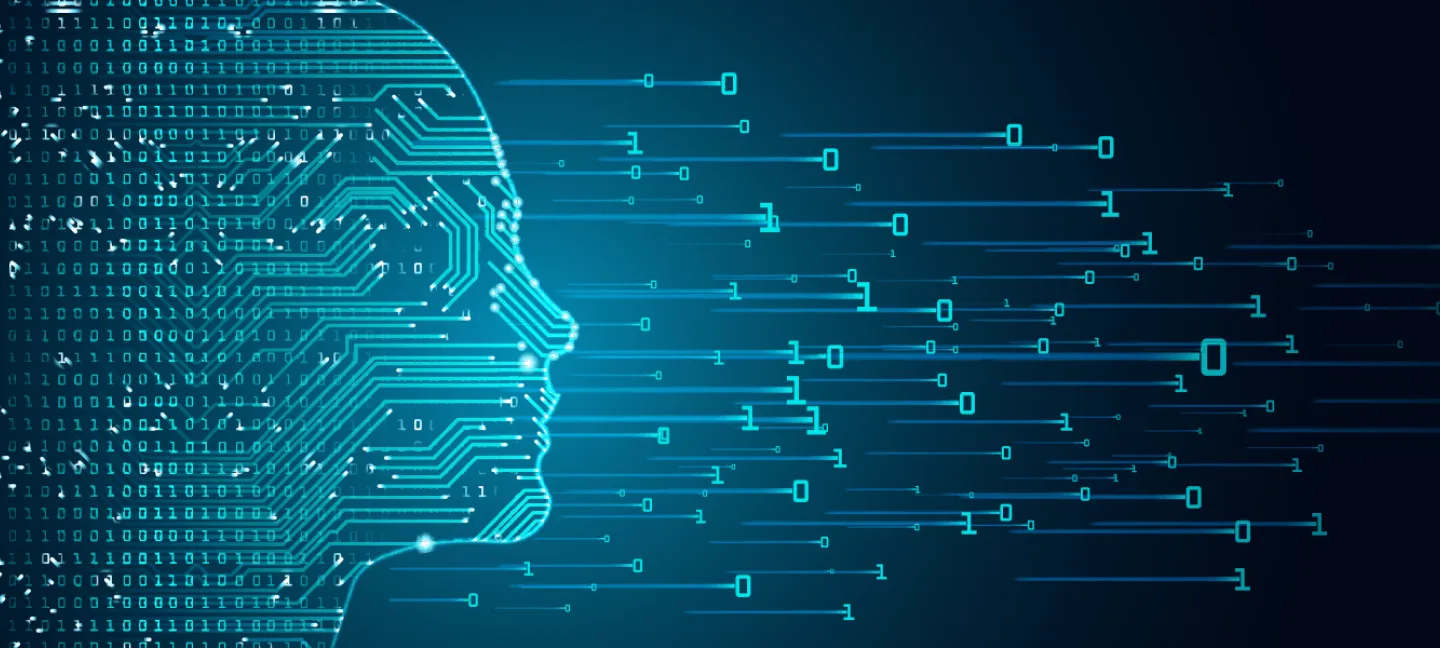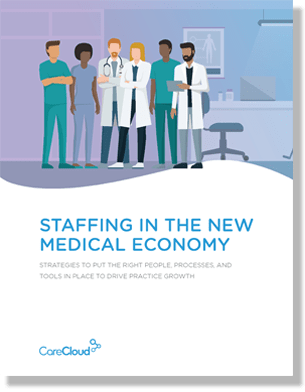Artificial intelligence (AI) has begun to disrupt healthcare in ways people could only imagine not long ago. And, the technology shows no signs of slowing down.
As companies experiment with different ways to use AI, patients, doctors, and others in the medical industry have opportunities to benefit. Here are 10 ways AI has impacted healthcare.
-
1. Assisting Emergency Medicine Dispatchers With Assessing Situations
Emergency medicine dispatchers have to keep callers calm while simultaneously evaluating the symptoms described, then use the information given to determine the urgency of a call. These professionals are fantastic at their jobs, but, like anyone else, they can make mistakes. An AI platform called Corti aims to prevent harmful errors.
It analyzes things like tone of voice, breathing patterns and the descriptions of symptoms, then compares them to an ever-growing database of past calls. Corti increases efficiency and accuracy and even suggests questions dispatchers should ask when triaging patients.
-
2. Improving Patient Compliance and Empowerment
Chatbots are an increasingly popular way to apply healthcare AI, especially since people are already comfortable with chat-based messaging platforms. Some companies have explored how chatbots could help patients follow doctors’ orders. One of them is Florencespan style=”font-weight: 400;”>. It reminds people to take medications at specified times and can help them keep track of progress toward health goals.
There’s also Sensely, a virtual nurse platform that analyzes voice input but also has a chat-only option. If needed, Sensely can help people find locations to receive care or give them self-care information that’s relevant to their situations.
-
3. Providing Guidance to Radiologists
Medical imaging procedures can help members of a patient’s care team understand more about what’s going on and how to treat it. Samsung is among the companies leading the way in using AI to assist radiologists. It has technologies that more accurately detect lung nodules and display images of lung tissues concealed by bone structures in chest X-rays.
Another AI-driven technology from Samsung looks for breast legions and increases successful diagnosis rates of doctors who have four years or less of experience. Other companies are also looking into ways to use AI to help radiologists, so more changes in this area will likely happen soon.
-
4. Identifying Cancerous Moles
Dermatologists urge patients to perform regular skin checks and look for signs that moles could be cancerous. People learn that if moles develop irregular borders or change color or size, those things could indicate malignancy and mean they should make appointments with their health care providers.
However, there could soon be an increase in health care AI tools that examine moles and assist dermatologists with spotting the potentially dangerous ones. In one case study, an AI-powered machine identified cancerous moles more accurately than doctors and had fewer instances of classifying benign moles as malignant.
Other technologies are likely to positively impact the healthcare industry, such as Dr. Geoff Tabin’s eye care model that restored sight in hundreds of thousands of patients with a $25 treatment. In these innovative times, there’s no telling what seemingly miraculous treatments and preventions we’ll see.
-
5. Alerting Doctors of Problems Before Symptoms Appear
Physicians often take proactive measures by encouraging people to maintain healthy diets and take part in regular exercise. The hope is that by doing those things, patients could stave off future health complications. However, there are early developments in using AI to detect issues before symptoms become evident, which could forever change preventative care.
Google researchers are investigating how looking at blood vessels in the eyes could give indicators of cardiovascular health, and there is another system that detects a person’s body movement through walls and analyzes it with machine learning. By using tools like those, doctors could get alerts about health problems that they might not otherwise notice for months.
-
6. Making Blood Tests More Efficient
Once patients get their blood drawn at medical appointments, it’s typical for them to wait several days to get results. But, an Israeli company called Sight Diagnostics wants to change that with a healthcare AI system that gives results in about 10 minutes. It examines drops of blood using 19 parameters and an image analysis component that counts blood cell types.
This advancement means providers could start patients on the necessary treatments during their initial visits instead of during follow-up appointments. Moreover, the expedited process could reduce the anxiety people feel when waiting for their results.
-
7. Increasing Surgical Success Rates
The use of AI during surgery is still in the early stages, but the technology could minimize errors during operations and give surgeons insights as they perform procedures. Often, surgical robots have AI components that improve overall performance and accuracy. One example of health care AI making surgeries more successful is a robotic hand that depends on AI to stabilize tremors in a surgeon’s hands.
AI tools can also minimize uncertainty by providing better visibility during and before procedures. All operations come with risks, but these applications of AI and others could keep patients safer and give them better results.
-
8. Helping People Overcome Substance Abuse
Even exceptionally dedicated individuals who are working toward substance abuse recovery often relapse. A platform called Triggr Health aims to reduce that likelihood. It uses AI to analyze various forms of content from users to predict when people may use their substances of choice. When the probability becomes high, notifications go out to the patient’s caregivers and alert them to intervene.
Using AI like this could be especially useful for patients living in rural areas who are attempting to detox but cannot attend regular in-person visits. Additionally, it could work well for people who are not always aware of the various factors that push them to use.
-
9. Supporting Customers With Their Health Insurance Plans
Health insurance plans can intimidate customers, especially if they subscribed to new plans recently or haven’t made claims before. A health insurance company in New Zealand aimed to combat the issues that can arise from a lack of information. It created chatbots that let people ask questions about their plans. The technology even recognizes Kiwi slang.
This is an instance — like most of the others here — where AI supplements humans. The use of chatbots relieved burdens on customer service staff members and allowed plan subscribers to get fast access to need-to-know information.
-
10. Bringing Drugs to Market Faster Than Before
Many people with life-altering illnesses wait anxiously for new drugs to get approved so they can benefit from them. Some agree to participate in clinical trials that gauge the efficacy of new pharmaceutical products. The costs and timeframes associated with commercializing new drugs are going up, but healthcare AI could help.
Potential applications are still under development, and it’ll probably be a while before people recognize the full potential of using AI when working on the goal of bringing new drugs to the market. However, current AI applications include using the technology to find the most appropriate candidates for trials, design the trials and improve patient engagement throughout trials.
-
Exciting Developments on the Horizon
This list highlights why healthcare AI is so promising for people who work in healthcare and all the patients who benefit from those professionals. Artificial intelligence will continue to positively impact AI for the foreseeable future — as well as in ways we haven’t envisioned yet.
DUMMYTEXT
Sources:
- https://medium.com/authority-magazine/in-the-nick-of-time-how-ai-is-transforming-emergency-response-systems-to-help-save-lives-f924e54389ab
- http://www.sensely.com/
- https://www.zdnet.com/article/samsung-applies-ai-to-medical-imaging/
- https://www.theguardian.com/society/2018/may/29/skin-cancer-computer-learns-to-detect-skin-cancer-more-accurately-than-a-doctor
- https://www.leadingauthorities.com/blog/speakers-on-the-future-of-healthcare
- http://www.bbc.com/future/story/20190116-the-invisible-warning-signs-that-predict-your-future-health
- http://www.digitaljournal.com/life/health/ai-based-diagnostic-for-faster-blood-tests/article/527034
- https://www.sightdx.com/
- https://triggrhealth.com/
- https://www.technologyreview.com/s/604085/treating-addiction-with-an-app/




